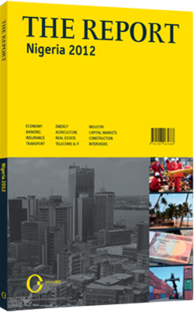Ovie Ukiri, Managing Partner, Ajumogobia & Okeke, on the mining industry

The Nigerian government has adopted what has been referred to as an ambitious policy to grow the mining sector to 15% of GDP by 2015. The mining sector currently accounts for 1% of Nigeria’s GDP. Clearly, to achieve the proposed growth, Nigeria would require immediate and substantial foreign and local investment in the mining sector. Whether this can be achieved in the short term would depend on how conducive and competitive Nigeria and its mining sector are in attracting the required level of investments. Nigeria has a significant mineral spread with evidence of 34 different minerals distributed throughout its geology. The Nigerian government has indicated that priority is to be given to the development of seven strategic minerals: coal, bitumen, limestone, iron ore, barites, gold and lead/zinc. These minerals were selected in view of their strategic importance to Nigeria’s economy and their availability. The Nigerian Minerals and Mining Act 2007 not only places control of all mineral resources in, under, or upon any land in Nigeria with the federal government, but, more importantly, it guarantees that property in mineral resources shall pass from the government to the extractor in accordance with the act. The act is generally administered by the minister for solid minerals development through the Mining Cadastre Office (MCO), which operates as the sole agency responsible for the administration of mineral titles throughout Nigeria. The MCO is responsible for considering prospective companies’ applications for mineral titles and permits as well as the issuing, suspending and, upon the written approval of the minister, revoking of any mineral title. According to the act, the minister determines where exploration licences and mining leases will be granted on the basis of a process of competitive bidding. The act also gives first priority for the use of available land to the mining sector over other uses and considers purposes of access, use and occupation as constituting overriding public interest under the Land Use Act.
Crucial to achieving this aim, the act provides certain tax and other incentives for companies operating in the mining sector. A company may receive tax relief for a period of three years, which may then be extended for a further period of two years upon the fulfilment of certain conditions. The tax relief commences on the date the licensee begins operations. A licence holder is entitled to deduct from its assessable profits a capital allowance of 95% of qualifying capital expenditure, incurred on infrastructure and other related costs in the year in which the investment was made. The title holder is also exempted from the payment of import and Customs duties for plant and machinery that are purchased for related mining operations. In addition, free transferability of funds through the Central Bank of Nigeria in convertible currency, payments in respect of loans and remittance of foreign capital in the event of sale or liquidation of the mining operations are guaranteed. The act also provides for the payment of royalties in respect of minerals obtained in the course of exploration or mining operations. However, these payments may be deferred for a specified period, but only with the Federal Executive Council’s express approval.
Under the act, licences may be granted to a Nigerian citizen, a company formed under the Companies and Allied Matters Act (CAMA), a mining cooperative, and where applicable, a previous holder of a relevant exploration licence. However, in the case of mining leases, it appears that the emphasis is on companies formed under CAMA. A mineral title may be revoked on the written advice of the minister after 30 days notice of intention to revoke the mineral title has been given if the holder has failed to remedy a breach.
The task of the Nigerian government appears daunting but not impossible if the other parameters of the Nigerian economy are urgently improved upon. Based on proven reserves and with proper implementation of applicable laws and regulations, mining in Nigeria offers a viable alternative to the petroleum industry in terms of foreign exchange earnings and job creation.
You have reached the limit of premium articles you can view for free.
Choose from the options below to purchase print or digital editions of our Reports. You can also purchase a website subscription giving you unlimited access to all of our Reports online for 12 months.
If you have already purchased this Report or have a website subscription, please login to continue.

